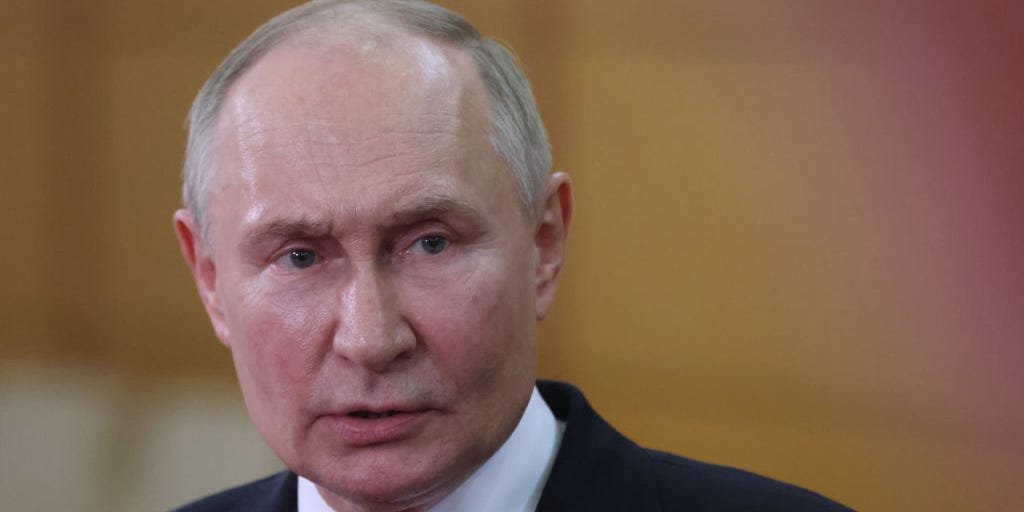Russian President Vladimir Putin desires to impose his personal commerce restrictions to retaliate towards the West’s sanctions.
However there’s one subject: He nonetheless must fund the struggle in Ukraine and income from oil exports are probably underneath strain.
On Wednesday, Putin instructed his authorities to think about the export of strategic commodities, akin to uranium, nickel, and titanium, in accordance with state information company TASS.
“They’re limiting provides of quite a few items to us. Nicely, perhaps we also needs to impose sure restrictions?” Putin stated.
Nevertheless, any such limits ought to solely be imposed if they don’t “hurt us,” stated Putin, including that he wasn’t saying he was anticipating motion “tomorrow.”
Russia is a commodities large and a prime exporter of the three metals Putin highlighted, so any disruption to produce might have severe world fallout.
Amongst different makes use of, uranium is used for nuclear power era, nickel is utilized in batteries, and titanium is utilized in aerospace manufacturing.
The US has already banned some Russian metal imports, together with uranium.
Markets took observe: Three-month nickel on the London Steel Change closed 2.5% greater on Wednesday, following Putin’s feedback. Shares in uranium miners additionally jumped.
Russia imposed non permanent export bans for over 200 merchandise in March 2022, which it stated was to “keep stability” in its personal market. It additionally launched a short lived ban on gasoline exports from March this 12 months to satisfy rising native demand.
Russia’s oil income are probably underneath strain
Along with metals, commodities are an enormous contributor to Russia’s backside line.
The oil and gasoline business accounts for 30% to 50% of federal budget revenue, the Oxford Institute for Power Research estimated.
Europe is weaning itself off of Russian fossil fuels. Whereas Russia has managed to pivot to alternative markets, the commodities are sometimes bought at large reductions resulting from sanctions, in accordance with an S&P Global report final month.
On the similar time, Russia’s breakeven oil value has elevated because the struggle began, in accordance with S&P International, which attributed the rise to conflict-related prices.
This 12 months, Russia’s breakeven oil value is $94 a barrel — up from $62 a barrel in 2021, per S&P International. This means income are underneath strain, particularly because the G7 has imposed a $60 a barrel price cap on Russian seaborne oil.
To make sure, Europe hasn’t been capable of sanction many different Russian commodities outdoors the oil and gasoline sector to this point as a result of there are considerations about world meals safety if grains, oil seeds, and fertilizer exports are restricted.
Finland and components of Jap Europe additionally want Russian uranium as a result of they use Russian-made nuclear power reactors.
Whereas Europe faces challenges in lowering its reliance on Russian commodities, Russia has its personal export issues, too. Commodities are essential for its struggle chest and there is solely a lot oil it may pump, because the nation is a part of the OPEC+ oil alliance.
“Russia has managed to maintain its oil manufacturing and exports regardless of Western sanctions and OPEC+ cuts, though it has confronted challenges with its oil money flows,” wrote Svetlana Tretyakova, a senior analyst at Rystad Power, in late August.
Russia exported 3.36 million barrels per day of seaborne crude oil in August, per S&P Global.
Nevertheless, ongoing compliance points with OPEC+ manufacturing targets and low crude shares pose dangers to sustaining this stage, wrote Tretyakova.

